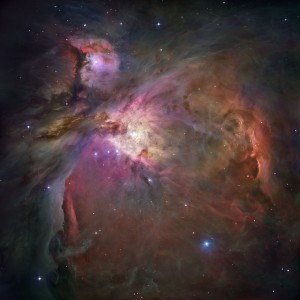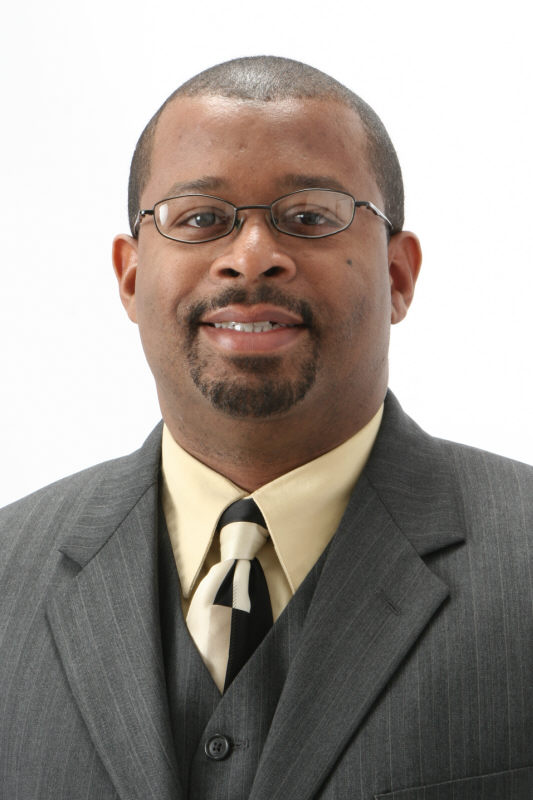
Revelation, redemption infuse world premiere orchestral work
For James Lee III, there’s a passage in the New Testament’s Book of Revelation whose positive message means a lot to him and his music. It’s from Chapter 22, verse 17: “And the Spirit and the bride say, Come … And let him that is athirst, come. And whosoever will, let him take the water of life freely.” Lee says it’s the voluntary nature of that passage that he finds significant. “It’s an open invitation for anyone to choose to accept or not to accept,” he said. “There’s no forcing there.”
Lee, a 35-year-old professor of composition at Morgan State University in Baltimore, brings that message of religious redemption to his newest work, “Sukkot Through Orion’s Nebula,” which will have its world premiere Saturday night with the New World Symphony and conductor Michael Tilson Thomas.
Also on the program at the New World Center, which will be repeated Sunday afternoon, are the Sinfonietta of Leos Janacek, Smetana’s overture to his opera “The Bartered Bride,” and the Schumann Piano Concerto, with Spanish pianist Javier Perianes as soloist.
Lee describes his new piece as a 10-minute essay in ternary form, made up of seven continuous sections.
“It’s a festive work that has to do especially with that idea of thanksgiving and harvest time,” he said, Sukkot being the Feast of the Tabernacles, which follows Yom Kippur in the Judaic calendar. “And then there is the aspect of the Orion’s Nebula, which is obviously from the constellation out in space. This is a circular nebula that is mentioned throughout the Old Testament.
“And it has to do with the kind of final festive celebration, of receiving the Messiah and the New Jerusalem, and the all these ideas mentioned in the Book of Revelation,” said Lee, a practicing Seventh-day Adventist.
Lee’s program notes indicate that the music is evocative of Jewish feasts, including the sound of the shofar, and of something otherworldly, as violins in their highest registers describe the arrival of the New Jerusalem, after which “trills among the strings cease as they continue to climb to heights of bliss in paradise.”
“Sukkot Through Orion’s Nebula“ was commissioned by the Sphinx Organization of Detroit, a Knight Arts grantee, and will be played by the Cincinnati Orchestra and the Grand Rapids Symphony later this season.
Lee is a native of Benton Harbor, Mich., who started music lessons relatively late, at age 12, when his father signed him up for piano instruction without him knowing about it. He didn’t really want to do it at first.
“I thought it was a girl thing. I thought I was too cool to play piano,” he said, but he found himself drawn to it, even though he stood out as an older kid among much younger players at recitals. “But out of all those people I remember from back then, I’m the one who ended up studying music and trying to excel.”
He went on to the University of Michigan, where he worked with such leading compositional luminaries as Bright Sheng, Michael Daugherty and William Bolcom. He earned his doctorate in Ann Arbor and then took the job at Morgan State in 2005.
Lee’s compositions include a good deal of sacred music, including a setting of Psalm 61 that had its premiere at Tanglewood in 2002, sonatas for piano, violin and cello, as well as a piano concerto, and orchestral works including”Beyond the Rivers of Vision,” written for Leonard Slatkin and the National Symphony in 2005.
His next premiere after “Sukkot“ is a piano quintet that will be performed in February 2012 at the University of Washington in Seattle.
Lee describes his compositional style as tonal, but one that avoids functional harmony on the grounds that it’s too predictable for his taste.
“My style is mostly tonal. I might have tonal centers that appear here and there … I use free dissonances and, from time to time, cluster chords,” he said. “I want to be able to find a way to elude certain expectations.”
As an African-American classical composer, Lee is part of a small group. The majority of black composers in the United States have been celebrated for their work in jazz and popular music. But Lee works in the tradition of fine writers, such as William Grant Still, whose work remains unaccountably neglected, and George Walker, who won the Pulitzer for his “Lilacs“ in 1996.
“It seems that a lot of African-American composers get performed more during February, in a Black History Month program, but it always seems to be a movement from a larger work. I don’t know why that continues to this day,” he said. “I guess there must be some programming preferences in terms of who gets performed more often.
“What tends to happen, I’ve noticed, is that there tend to be choirs that sing on these concerts, and they attract a lot of audience that might not necessarily be there to hear William Grant Still,” Lee said. “And then William Grant Still will be the first work physically on the concert, unfortunately. And then it’s like, ‘Well, we’ll get that music out of the way and then we’ll listen to what we really want to hear with the choir.’”
But Lee’s primary compositional motivation is religious, not racial, he said.
“There’s a lot of music that’s based on mythological figures, [but] instead of focusing on that, I try to focus on things I consider to be more true and lasting. That’s why I do a lot of works that are based on the books of Daniel and Revelation,” Lee said. “Those are serious topics that people in the world really want to get to know, that … really would be a matter of life and death. I think if they would consider some of those topics through the music, they would be much happier in the long run, in their lives and the life to come.”

The New World Symphony’s opening concerts, featuring James Lee III’s “Sukkot Through Orion’s Nebula,” are set for 7:30 p.m. Saturday and 2 p.m. Sunday at the New World Center in Miami Beach. Visit www.nws.edu for more information.
Recent Content
-
Artsarticle ·
-
Artsarticle ·
-
Artsarticle ·

